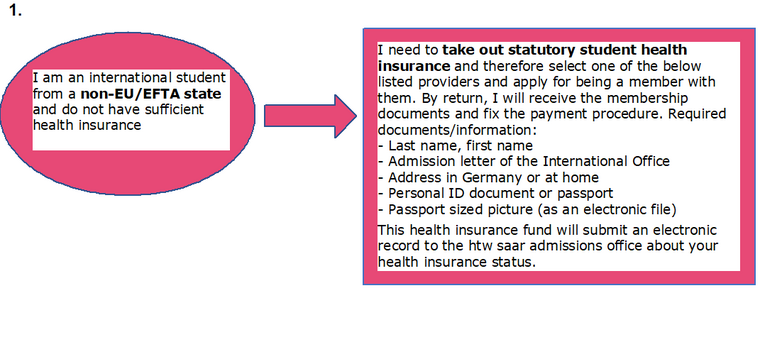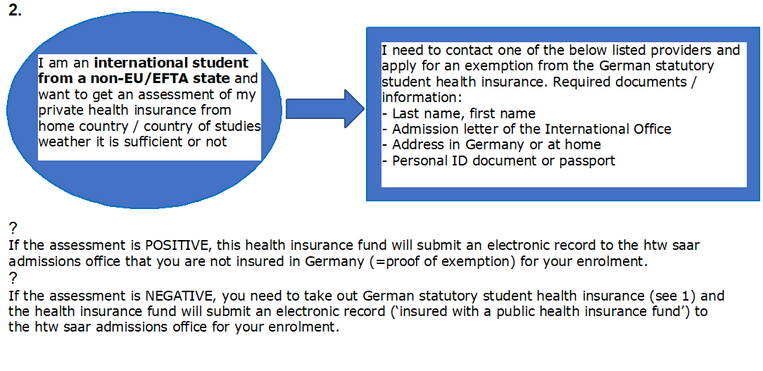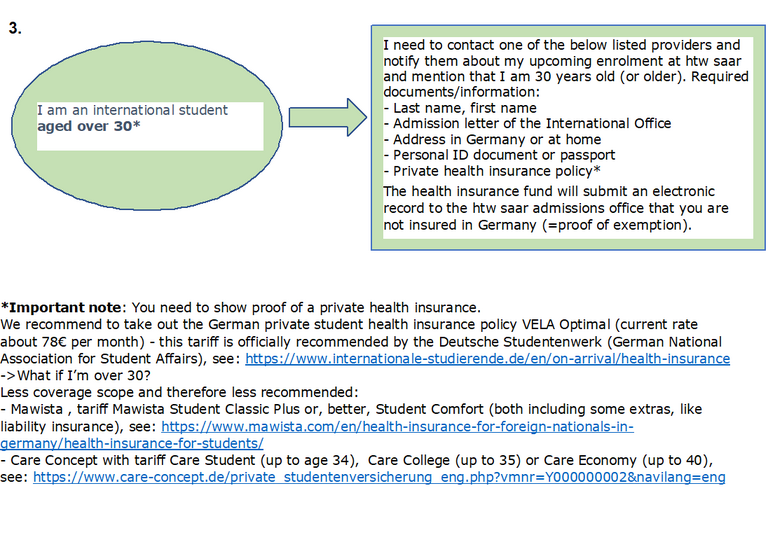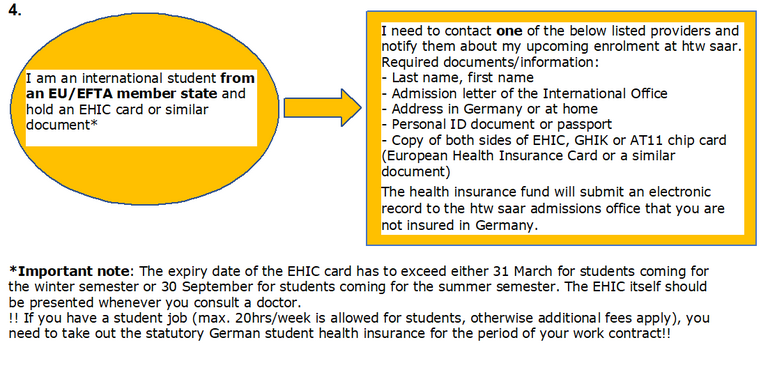
Germany has a two-tiered (public and private) health insurance system. For an explanation of the German health insurance system in English see:
https://www.krankenkassenzentrale.de/wiki/incoming-en and https://www.internationale-studierende.de/en/on-arrival/health-insurance (information by the Deutsche Studentenwerk =German National Association for Student Affairs).
The statutory public health insurances ("Gesetzliche Krankenkassen") are mandated to provide health insurance to students (up to age 30) at a discounted rate (approximately €125 per month for students under the age of 30, as of January 2025). The rate and scope of coverage are determined by law and are about 90% identical across different public health insurance funds. Private health insurance policies from a foreign country must demonstrate an unlimited scope of coverage comparable to German health insurance, as medical treatment in Germany can be costly, especially for hospitalization or in the case of a serious illness.
For enrolment (registration) at any German university, every student must have sufficient health insurance. The new online procedure between universities and the public German student health insurance funds ("Gesetzliche Krankenkassen") requires that all students enrolling in a university first contact one of the statutory health insurance funds and inform them about their upcoming studies and their current health insurance status. The German health insurance provider will then submit a digital status notification to the university, indicating whether the student holds German public health insurance or not. This electronic record serves as proof of valid health insurance.
Typically, exchange students have one of the following four types of health insurance status before their enrolment:
1. Exchange students without valid/compatible health insurance: they take out statutory German student health insurance at one of the public health insurance funds
2. Some students may hold a private health insurance with unlimited coverage scope in their home country: they have to apply for a proof of exemption from the mandatory public student health insurance system towards one of the public health insurance providers.
3. Students aged over 30 from EU and Non-EU countries: they need to have a private health insurance
4. Exchange students from an EU/EFTA member state typically hold health insurance in their home country which is part of the inter-institutional agreements of the EU/EFTA which therefore also applies in Germany (they do not have to take out student health insurance in Germany).
Depending on what case applies to you, you will have to proceed as follows:



Accepted exchange students who come to htw saar in summer, need to send the notification about their upcoming enrolment at htw saar in February/March, students that are admitted for the winter, need to send it in August/September to a health insurance fund. We will send you a template on how to notify a German health insurance fund about your health insurance status and their contact details as soon as the online enrolment application is being kicked off.
Important information for international students from non-EU or non-EFTA member countries!
Proof of health insurance and visa/residence in Germany: If you are coming from a country outside of the EU and do not hold a residence title of an EU/EFTA member country, proof of sufficient health insurance is also a pre-requisite for the application of - a visa - a temporary residence permit at the immigration authority in the state of Saarland
If you are holding a residence title in an EU country for study purposes, sufficient proof of health insurance is required for - the entitlement for entry and residence in Germany in the framework of the REST procedure (this procedure replaces the visa procedure for students that study in and hold a study residence permit from an EU- or EFTA country)
More details on visa, entry, residence and REST procedure, see https://www.htwsaar.de/en/incoming-students/preparing-your-stay/visa-and-entry-information -> C. (Eased) Mobility in the framework of the Directive (EU) 2016/801 ("REST Directive")
It is very important to know that a private travel insurance from the home country or country of studies will not be accepted as sufficient by the German authorities and health insurance funds!

Austauschstudierende (Incoming, Erasmus+) | Erasmus+ incoming exchange students

Betreuung internationale Regelstudierende & Austauschstudierende (Incoming Erasmus+ und Übersee)